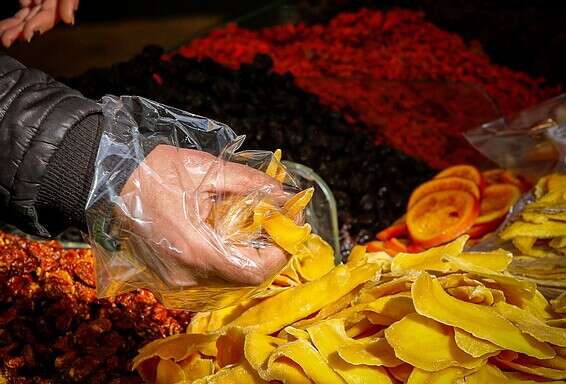On Rosh Hashanah it is customary for trees to eat dried fruit and some hold a feast • Not many people know that according to Kabbalah it is also a good day for virtues • The Kabbalist Rabbi Yitzchak Batzri makes an order
Dried fruits for Tu B'Shvat
Photography:
Oren Ben Hakon
Tu B'Shvat is Rosh Hashanah for the trees, just as Rosh Hashanah is for man. This is the day when the trees are destined for the quality of the fruit that will yield us.
Man is likened to a fruit tree, which bears fruit, and whose whole deeds are for influence and benefit.
Tu B'Shvat is considered a day of correction. Just as the trees are renewed on this day, so on this day man can change his actions for the better, while a person who has failed all year gets correction and powers to change his actions.
Tu B'Shvat is considered a day of great correction and the Holy Ari established what is known to many today as the Tu B'Shvat Seder, which is mainly a meal of the fruits of the Land of Israel alongside prayer and Torah study. The destitute in a variety of fruits, since not everyone had the opportunity to be honored in all kinds of species.
There are also those who maintain a good and beautiful custom and give on this day 91 pennies to charity, which are "tree" in gematria.
On the holiday, according to the Kabbalists, it is customary to eat 30 kinds of fruit that are divided into three types that are against the spiritual worlds, worlds that build the tree of life:
Ten species that are against the world of creation, about which it is said that there is no evil in it, only good, and so also the fruits are eaten whole and have no rind neither inside nor outside, like grapes and figs.
Ten species that are against the world of creation, which is considered an average that is half good and half bad and so the fruit is eaten from the outside without the core inside like olives and dates.
And ten species which are against the world of doing, most of which are evil, and therefore the fruit is eaten from within without the bark from without, which is the partition which protects it from impurity.
Like pomegranates and almonds.
Similar to the prayer for the fruit, Kabbalah Tu B'Shvat is also a special day in which we seek to pray for matings that will establish a home and produce healthy offspring who are engaged in Torah and mitzvos.
In cases where, unfortunately, a person can not afford to buy 30 kinds of fruit, it is important to make sure that he has at least the seven species in which the Land of Israel has excelled: wheat, barley, vine, fig, pomegranate, olive and date honey.
The elders of the son Ish Chai Zi'a St. formulated and added a special prayer on the etrog as a virtue for achieving a fine and elegant etrog also next year.
A prayer that originated in the days of the ancient period when it was difficult to obtain quality etrogs and the concern for this arose with great expense.
There are also those who eat the etrog on Tu B'Shvat, which they celebrated this year on Sukkot as a virtue for the housewife.
These days when morbidity is on the rise and we are threatened with spreading mutations, Tu B'Shvat arrives on time to seek virtue and bring a language of medicine to Klal Yisrael.

